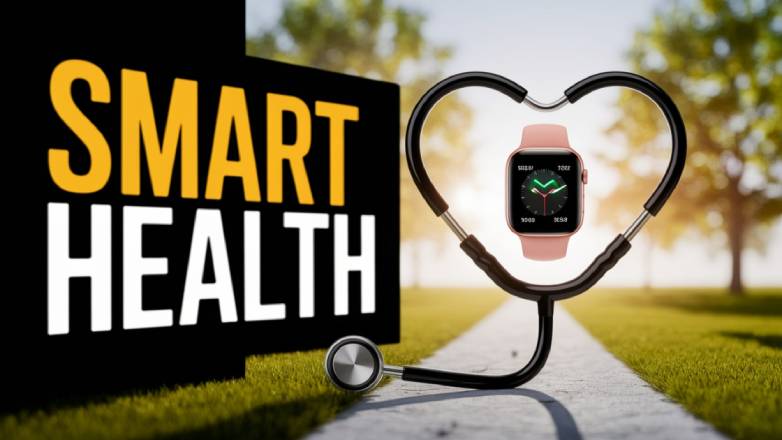When you look in the mirror, you see you—a single human being. But biologically speaking, you’re much more than that. You are an entire ecosystem, home to trillions of microscopic organisms that live on and inside your body. These tiny life forms—bacteria, viruses, fungi, archaea, and protozoa—collectively form what scientists call the human microbiome.
Far from being passive hitchhikers, your microbiome plays an active and essential role in your health. It helps digest food, fight off infections, regulate your immune system, and even influence your mood and mental health. Yet, despite its importance, this hidden world is still being uncovered—and much of what we do (or don’t do) affects it in profound ways.
Let’s take a deep dive into your inner universe.
What Is the Microbiome—and Why Does It Matter?
The human microbiome refers to all the microorganisms—especially bacteria—that live in and on your body. There are about 100 trillion microbes, outnumbering human cells 10 to 1 (though some newer estimates put the ratio closer to 1:1). Most reside in your gut, particularly in the large intestine, but they also live on your skin, mouth, lungs, and reproductive organs.
Each person’s microbiome is as unique as a fingerprint, shaped by factors such as:
- Genetics
- Birth method (vaginal vs. C-section)
- Breastfeeding vs. formula
- Diet
- Environment
- Medication use (especially antibiotics)
While many microbes are harmless or beneficial, an imbalance—where harmful microbes outnumber helpful ones—can contribute to numerous health issues.
The Gut-Brain Connection: Your Second Brain
You may have heard the phrase “gut feeling” or felt “butterflies in your stomach” before a big event. These aren’t just expressions—they reflect a profound biological reality.
Your gut contains its own nervous system—the enteric nervous system (ENS)—which communicates with your brain via the vagus nerve. This gut-brain axis allows two-way communication between your digestive tract and your brain, impacting emotions, cognition, and mental health.
Here’s how your microbiome is involved:
Microbes Produce Neurotransmitters
Gut bacteria synthesize many of the same chemicals that regulate mood, including:
- Serotonin (90% of which is produced in the gut)
- Dopamine
- GABA (gamma-aminobutyric acid)
These neurotransmitters influence anxiety, depression, and overall mental well-being.
Inflammation and Mental Health
An unbalanced microbiome can lead to gut inflammation, which in turn is linked to neuroinflammation—a potential driver of conditions like depression, Alzheimer’s disease, and Parkinson’s.
Microbiome and Mental Disorders
Studies have found that people with major depressive disorder, autism spectrum disorder, and anxiety often have altered gut microbiomes. Though it’s still early, fecal microbiota transplants (FMTs) and probiotic treatments are being explored as potential therapies.
Microbiome and Physical Health: Digestion, Immunity, and More
Your microbiome doesn’t just influence your brain. It plays a crucial role in nearly every bodily function.
Digestion and Nutrient Absorption
Gut bacteria help break down complex carbohydrates, fibers, and polyphenols into short-chain fatty acids (SCFAs) like butyrate, which:
- Nourish colon cells
- Reduce inflammation
- Support immune function
Without these bacteria, your digestive efficiency plummets—and you miss out on key nutrients.
Immune System Regulation
The gut microbiome teaches your immune system how to:
- Distinguish between harmless and harmful invaders
- Respond appropriately to infections
- Avoid autoimmune diseases like Crohn’s, lupus, or type 1 diabetes
A diverse and balanced microbiome helps maintain immune tolerance, reducing the risk of allergies and chronic inflammation.
Weight, Metabolism, and Obesity
Microbiome imbalances are linked to:
- Obesity
- Insulin resistance
- Type 2 diabetes
Certain bacteria extract more calories from food and influence fat storage and hormonal signals of hunger and satiety. Even identical diets can yield different results depending on the individual’s gut composition.
Probiotics, Prebiotics, and Your Diet: How to Keep Your Microbiome Balanced
While your microbiome is relatively stable, it’s not fixed. You can shape and support it through your lifestyle—especially your diet.
Probiotics: Live “Good” Bacteria
Probiotics are beneficial microbes found in fermented foods and supplements. Common sources include:
- Yogurt (with live cultures)
- Kefir
- Sauerkraut
- Kimchi
- Tempeh
- Miso
Probiotics can:
- Restore microbial diversity after antibiotics
- Support digestion
- Improve symptoms of irritable bowel syndrome (IBS)
- Enhance immune defense
Not all probiotic products are created equal. Strain specificity, viability, and dosage matter.
Prebiotics: Food for Your Microbes
Prebiotics are non-digestible fibers that feed beneficial bacteria. They’re found in:
- Onions
- Garlic
- Leeks
- Bananas
- Asparagus
- Whole grains (like oats and barley)
Feeding your good bacteria helps them thrive, which in turn helps you thrive.
What to Avoid
- Ultra-processed foods reduce microbiome diversity.
- Excessive sugar and artificial sweeteners can favor harmful bacteria.
- Overuse of antibiotics wipes out good bacteria along with the bad.
- Chronic stress and poor sleep can alter your microbial balance.
The Microbiome in Medicine: A New Frontier
The more scientists learn about the microbiome, the more it's becoming central to medical research.
Promising areas include:
- Fecal microbiota transplants (FMT) for Clostridium difficile infections
- Microbiome-based cancer therapies
- Predictive microbiome testing for disease risk and drug response
- Personalized nutrition and probiotics based on your microbiome profile
The Human Microbiome Project, launched by the NIH, has already mapped thousands of microbial species and is driving breakthroughs in gut health, mental health, and chronic disease treatment.
Final Thoughts: Your Inner World, Your Health
The microbiome is more than a collection of microbes—it’s a dynamic, intelligent network intricately linked to every aspect of your health. The key to vibrant well-being may not lie only in genetics or exercise, but in the invisible life forms we carry inside us.
You’re not just you—you’re an ecosystem. And by learning to live in harmony with your microbiome, you can unlock a powerful path to better health, sharper thinking, stronger immunity, and maybe even a longer life.
So the next time you eat a fiber-rich meal or spoon some yogurt, remember: you’re feeding trillions of tiny allies.






